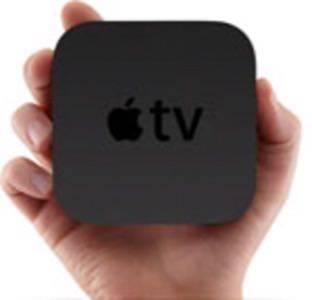Looking back on the year in Web technology, we can see that several product categories have evolved significantly over 2010. We’ve already written about App Stores and eReaders. Another market that progressed in 2010 was Internet TV. Among the developments: Apple announced a major overhaul of Apple TV, Google launched its Android-powered Google TV platform and partnered with Sony, Boxee and Roku continued to improve their set-top box products, startups like Clicker innovated new types of web services for Internet TV, and content platforms like Hulu captured more viewers.

In this post we review the Internet TV market over 2010 and highlight the big stories of the year.
Apple TV & its Competition
When it comes to Internet-connected consumer electronics, Apple dominates several key markets already: music (iPod), smartphone (iPhone) and tablet (iPad). However its Internet TV product, Apple TV, has been much less successful… so far. In an attempt to change that, in September Apple announced a re-designed Apple TV.

ReadWriteWeb’s 2010 In Review:
- Top 10 Semantic Web Products of 2010
- Top 10 RSS and Syndication Technologies of 2010
- Best BigCo of 2010: Facebook
- Top Trends of 2010: App Stores
- Most Promising Company For 2011: SimpleGeo
- Top Trends of 2010: Internet TV
- Top 10 Startups of 2010
- Top Trends of 2010: Privacy
The new Apple TV has a lower price (now $99, compared to $229 for the first generation product), streamlined form (80% smaller), streaming functionality, no more local storage, Netflix and YouTube access, and 99c TV show rentals. It remains to be seen if the new version of Apple TV brings as much success to Apple as its other consumer devices.
It’s a competitive field in the set-top boxes market, so Apple will have its work cut out in 2011. Boxee and Roku are two startups in this field worth keeping an eye on.
Google TV
In May, Google announced a new Internet TV product called Google TV. The most interesting aspect of the announcement was the developer ecosystem that Google introduced to television. Google TV will not just allow you to view television programs and online video content, it’ll also give you access to Internet TV applications built using Google’s mobile operating system Android.

Google is positioning itself as an Internet TV platform, rather than offering a hardware component like Apple TV and Microsoft Mediaroom. On the hardware side, Google partnered with electronics giant Sony. This quote from the Google Blog in May is key to understanding what Google is aiming for: “your TV becomes more than a TV — it can be a photo slideshow viewer, a gaming console, a music player and much more.”
Internet TV Web Apps: Clicker
Google TV and other similar platforms will foster an ecosystem of Internet TV apps, similar to what’s occurred with smart phones over the past few years (albeit on a lesser scale). An app that may be a sign of what’s to come is Clicker. Billed as a “TV Guide for the Internet” when it launched in November 2009, Clicker is essentially a browser-based portal for your TV. It enables you to search for online TV programs, subscribe to them, watch them inside the site, and more.
In September, ReadWriteWeb spoke to Clicker co-founder and CEO Jim Lanzone. He told us that Clicker’s goal is to build “the ultimate programming guide for the next generation of TV, which is about navigation and discovery.” He added that “it’s not just finding TV shows, it’s also how you decide what to watch.”

Alternatives to Cable TV
Which brings us to the all important content. Television has always been about consuming content and 2010 was another step forward for services that provide online TV content. Hulu has been the most high profile of these services, due to its ties to the U.S. TV networks. In November, Hulu lowered the price for its premium service “Hulu Plus,” in an effort to attract more users. Previously, Hulu Plus was $9.99 per month, but in November it dropped to $7.99 per month.

Hulu Plus is also available on set-top boxes such as Roku.
Overall, 2010 has been a year of much progress in online TV. Of course, in the U.S. the main television networks still rely mostly on ‘offline’ TV for their revenues. And consumers by and large still watch popular shows like Mad Men through cables piped to their television sets. But if 2010 is any indication, the Internet has well and truly arrived as the future of TV.
Let us know your thoughts on Internet TV in 2010 – do you watch much television online?

















